
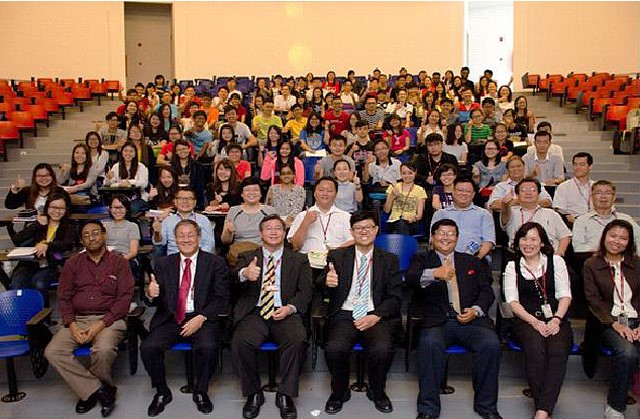
Second from left: Chai, Loo, Prof Choong and Dr Mahmud with UTAR staff,
students and members of the audience
To provide insights on the repercussions of GST from different perspectives,
an Intellectual Discourse Forum on GST was organised by the Faculty of
Business and Finance (FBF), Centre of Accounting, Banking and Finance at
UTAR Perak Campus on 22 June 2015.
The speakers at the Forum were FBF Dean Prof Dr Choong Chee Keong who is
also a scholar in Economics, Bobby Chai Boon Hui who is a lecturer from the
Marketing Department, and Loo Thin Tuck who is a lecturer from the
Department of Commerce and Accountancy. FBF Deputy Dean (R&D and
Postgraduate Programmes) Dr Mahmud bin Hj Abd Wahab served as moderator of
the Forum.
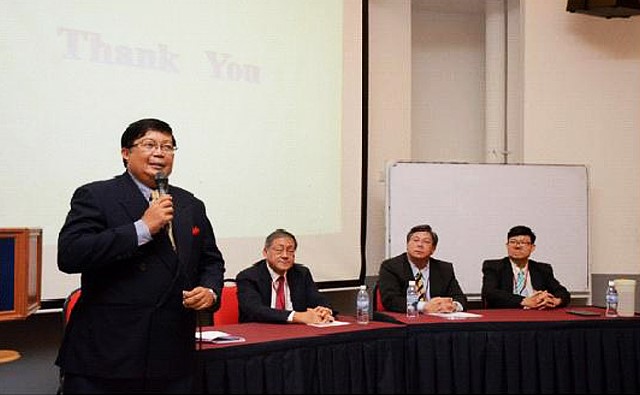
Dr Mahmud moderating the forum
Sharing his views on GST from the Malaysian economy’s point of view, Prof
Choong discussed the global economic environment in the context of GST
implementation and the challenges of implementation. Besides narrating the
present global crude oil price and the Malaysian exchange rate scenario, he
also explained why GST is implemented in Malaysia and its impact on the
Malaysian economy. He also spoke on the 11th Malaysian Plan on
the economic front and the projections for 2030 in respect of per capita GDP
in the ASEAN countries.
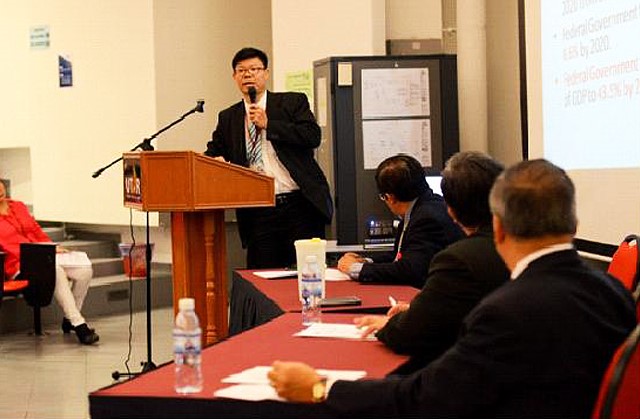
Prof Choong sharing his views on the implementation of GST
Bobby Chai, who has more than 30 years of experience in the banking and
financial services industry, shared his views on GST from the Malaysian
Business House perspective. He explained that most ASEAN countries have
already implemented GST. He also clarified that small businesses are
excluded from registration under GST, and that SME companies’ business tax
would be reduced from 20% to 19% from 2016.
He added, “The government will ensure that GST refund is made within the
stipulated time frame. Businesses will play the role of tax collector of
GST, since ultimately the GST will be collected by businesses and remitted
to the Customs Department after setting off the correct amount of input tax
credit.”
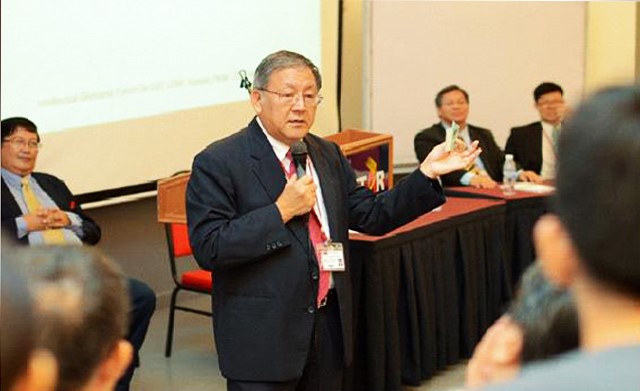
Chai explaining GST from the business perspective
Loo, a professional accountant as well as tax and GST consultant, shared his
views on GST from the Malaysian consumers’ perspective. He narrated the
possible increase of the Consumer Price Index in view of the GST
implementation.
“Buyers might have hoarded some household items to avoid paying GST,”
explained Loo. He added that some food items are rated with zero GST and
basic amenities are exempted from GST. Therefore, production cost will be
lower as GST paid on input is claimable by the businesses. He also described
the measures taken by the government to curb price rises such as the
anti-profiteering Act.
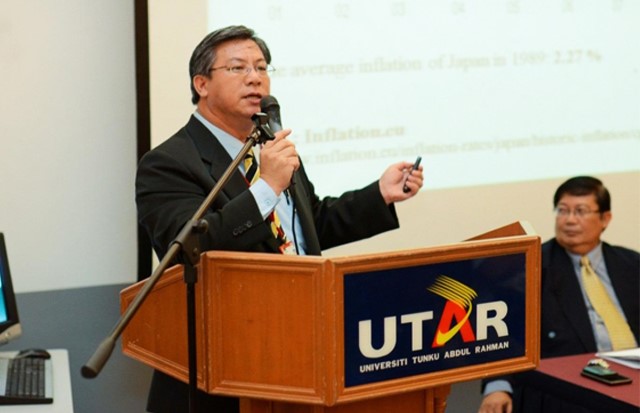
Loo expressing his views on GST from the consumers’ perspective
Dr Mahmud, who has 18 years of experience in the Malaysian banking industry,
requested Prof Choong to elaborate the steps that the government can take to
ease the burden of the people in terms of fiscal and monetary policy. Prof
Choong detailed the various steps that can be taken.
An interactive Q&A session was held in which the speakers addressed
questions from members of the audience. In response to a question by Ching
Suet Ling on how to arrest inflation in the context of GST, Prof Choong
said, “With or without GST, inflation is bound to occur in view of some
external forces like oil price. The main process to curb inflation is to
increase the productivity of business houses which will help to reduce the
cost of production.”
In response to another question by Dr Wong Kee Luen on how GST will help to
crack down tax evaders, Loo Thin Tuck replied, “The government is going to
link the Customs and Inland Revenue organisations’ database by which it will
ensure that the business houses declare their sales correctly.”
Wholly owned by UTAR Education Foundation Co. No. 578227-M LEGAL STATEMENT TERM OF USAGE PRIVACY NOTICE